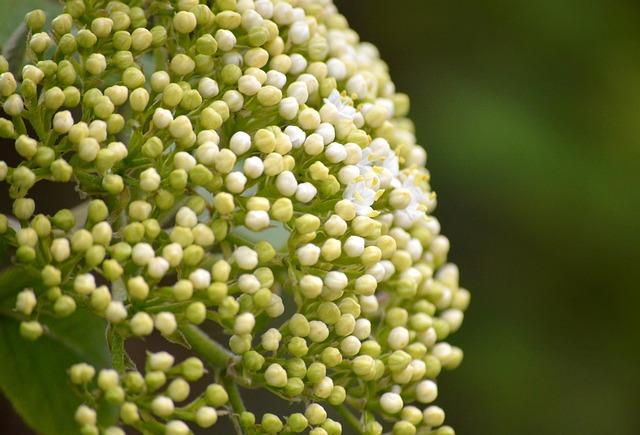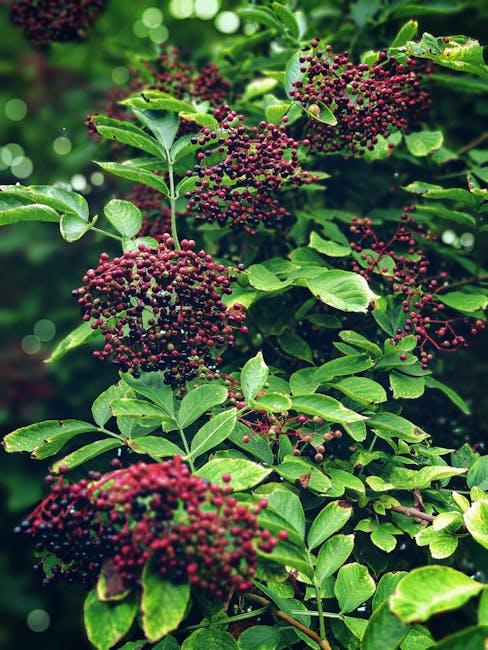In an age where wellness takes center stage, the quest for natural remedies has garnered renewed interest among health enthusiasts and skeptics alike. One botanical that often emerges in these conversations is elderberry—a small, unassuming fruit packed with a plethora of potential benefits. Traditionally celebrated in folk medicine, elderberry has made its way into the contemporary wellness lexicon, particularly for its promising role in immune support and antiviral properties. As seasonal illnesses loom and the search for effective, natural preventative measures intensifies, it begs the question: can elderberry truly bolster our defenses against viral infections? In this article, we will explore the science behind elderberry’s immune-boosting prowess, investigate its antiviral mechanisms, and examine its safety profile to reveal whether this age-old remedy deserves a place in modern health routines. join us on a journey through the fascinating world of elderberry, where tradition meets science in the pursuit of better health.
Exploring the Antiviral Power of Elderberry in Immune Support
Believed to be a powerful ally in the quest for a robust immune system, elderberry has gained popularity due to its potential antiviral properties. This deep purple berry is rich in antioxidants, particularly flavonoids, which may help combat viral infections such as the flu and common cold. Studies suggest that elderberry extracts can inhibit the replication of certain viruses by enhancing immune responses and reducing inflammation in the body. the potential benefits include:
- Increased production of immune cells: Elderberry may stimulate the activation of immune signaling pathways.
- Reduction of viral symptoms: It has been shown to alleviate symptoms and shorten the duration of illness.
- Natural alternative: Elderberry offers a holistic approach compared to conventional antiviral medications.
Furthermore, the safety profile of elderberry is generally favorable when consumed in recommended doses. While most people can enjoy its benefits with minimal side effects, one must be mindful of dosages, especially when using concentrated extracts or syrups. Underripe berries, as well as other parts of the elderberry plant, can contain toxic compounds. Therefore,it is essential to seek products that are properly processed and adhere to quality standards. Consider the following table on elderberry safety:
| Elderberry Form | Recommended Use | Safety Notes |
|---|---|---|
| Elderberry Syrup | Daily supplement | Ensure it’s made from ripe berries |
| Elderberry Capsules | As directed on packaging | follow dosage recommendations |
| Homemade Elderberry Juice | Occasional drink | Avoid using unripe berries |

The Science Behind Elderberry: Mechanisms of Action Against Viruses
Elderberry, particularly from the species Sambucus nigra, has garnered attention for its potential antiviral properties, primarily attributed to its rich flavonoid content, including anthocyanins and phenolic acids. these compounds act by inhibiting viral replication and promoting immune response. Specifically, research suggests that elderberry extracts can bind to viral proteins, obstructing the virus’s ability to enter and infect human cells. This property has shown promising results against pathogens such as influenza and herpes viruses. In addition, elderberry may enhance the production of cytokines, which are crucial for coordinating the body’s defense mechanisms during viral infections.
Another critical mechanism involves elderberry’s role as an antioxidant, helping to mitigate oxidative stress induced by viral infections. By reducing damage to cellular structures, it effectively supports overall immune function. The safety profile of elderberry is noteworthy, especially when considering herbal products. Most studies have indicated that elderberry, when used appropriately, carries a low risk of adverse effects, commonly presenting as mild gastrointestinal discomfort in some individuals. With a growing body of evidence supporting its effectiveness, elderberry is emerging as a natural ally in the fight against viral infections.

Safety First: Assessing the Risks and Benefits of Elderberry Use
When considering the use of elderberry for immune support, it’s essential to weigh both the potential risks and the benefits this natural remedy may provide. Elderberry has been widely recognized for its antiviral properties, making it a popular choice for those looking to bolster their defenses against colds and flu. Benefits of elderberry include:
- Potential reduction in duration and severity of flu symptoms
- Antioxidant properties that may support overall health
- Stimulating the immune response during viral infections
However, alongside these benefits, there are also several risks associated with elderberry use that should not be overlooked. It is crucial to use elderberry products appropriately to avoid potential side effects such as:
- Gastrointestinal discomfort
- Allergic reactions in sensitive individuals
- interactions with certain medications, particularly immunosuppressants
It’s advisable to consult with a healthcare provider, especially for individuals with existing health conditions or those taking medications, to ensure that elderberry is a safe option in their wellness regimen. With cautious use and informed decision-making, elderberry might serve as a valuable component of a holistic approach to health and well-being.

Practical Tips for Incorporating Elderberry into Your Wellness Routine
Incorporating elderberry into your daily wellness routine can be both fun and beneficial. Here are some practical ideas to seamlessly add this powerful berry to your life:
- Syrups and Supplements: Look for high-quality elderberry syrups or capsules that can be taken daily as a preventive measure. You can also explore DIY recipes to make your own syrup at home.
- Herbal Teas: Brew elderberry tea by steeping dried elderberries in hot water. This is a soothing option that can be enjoyed warm or iced, especially during cold and flu season.
- Food and Smoothies: Blend elderberry powder or juice into smoothies, yogurt, or oatmeal for a nutritious boost. This not onyl enhances the flavor but also adds a vibrant color to your meals.
For those looking to maximize the benefits of elderberry, consider creating a weekly meal plan that incorporates its potent properties. You can introduce elderberry into your diet through:
| Meal | Inclusion |
|---|---|
| Breakfast | Swirl elderberry jam into your morning toast or overnight oats. |
| Lunch | Add elderberry vinaigrette to salads for a unique flavor. |
| Dinner | Incorporate elderberry reduction sauce with roasted meats. |
| Dessert | Use elderberry compote as a topping for desserts like cheesecake. |
To Conclude
As we draw the curtain on our exploration of elderberry’s immune-supportive benefits, it’s clear that this humble berry, with its rich history and potent properties, merits a place in the wellness conversation. From its promising antiviral attributes to its safety profile that invites further study, elderberry stands out as a natural ally in our quest for health. However, as with all remedies, a balanced approach is essential.To unlock the full potential of elderberry, it’s wise to combine it with a varied diet, a healthy lifestyle, and, when necessary, the guidance of healthcare professionals. By embracing both tradition and innovation, we can make informed choices that harmonize with our body’s needs. So, as we navigate the seasons of health and illness, let elderberry be a beacon of nature’s wisdom, reminding us that sometimes, the answers lie just beneath the surface of our everyday lives.






